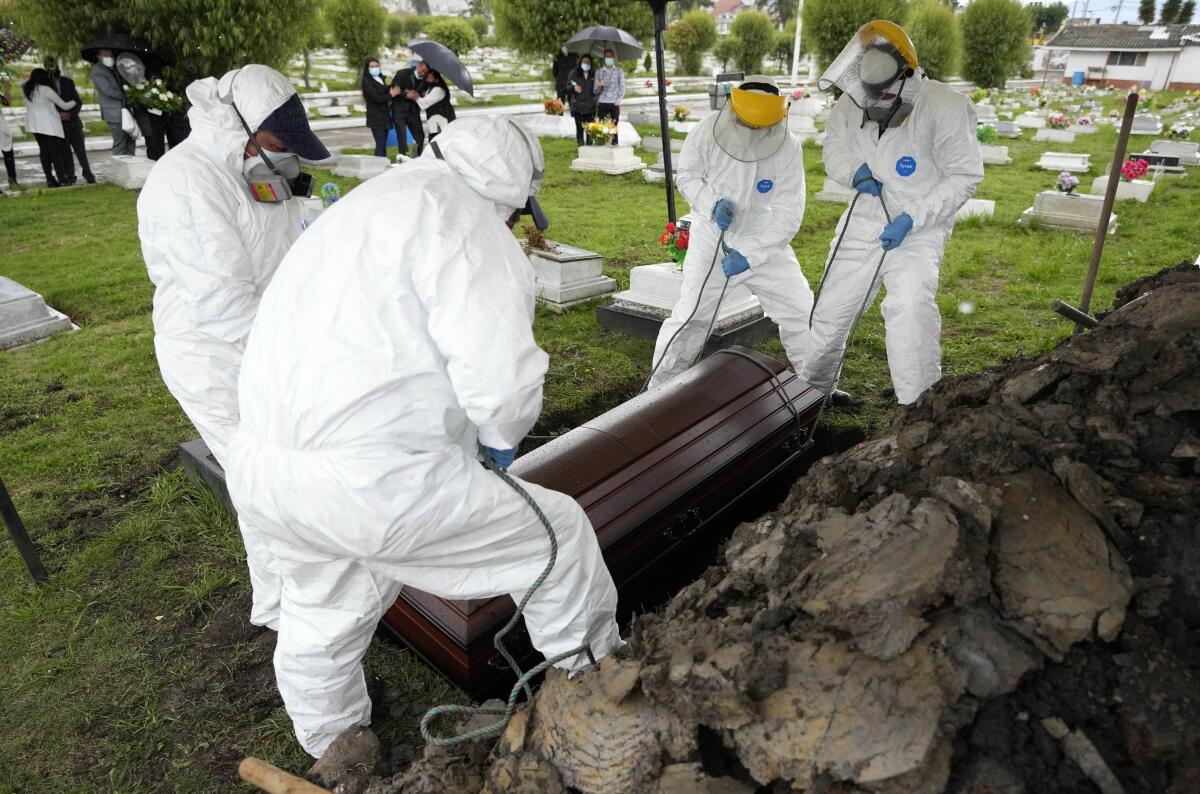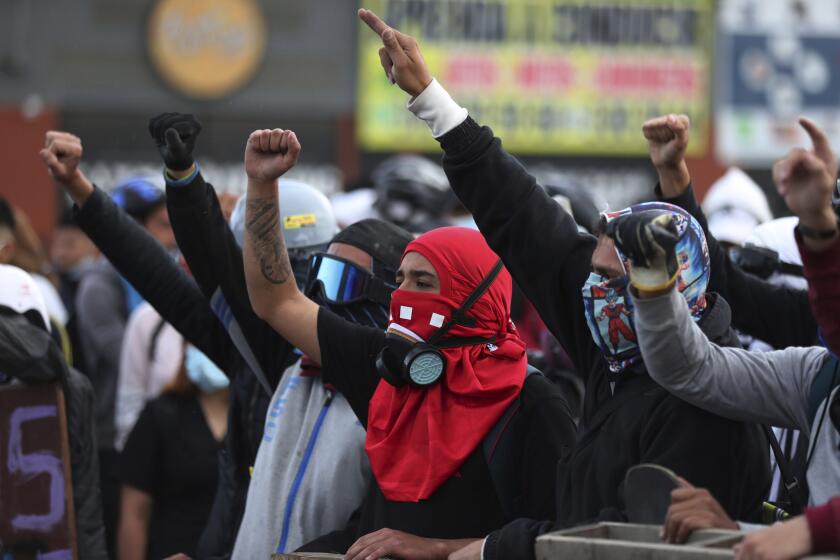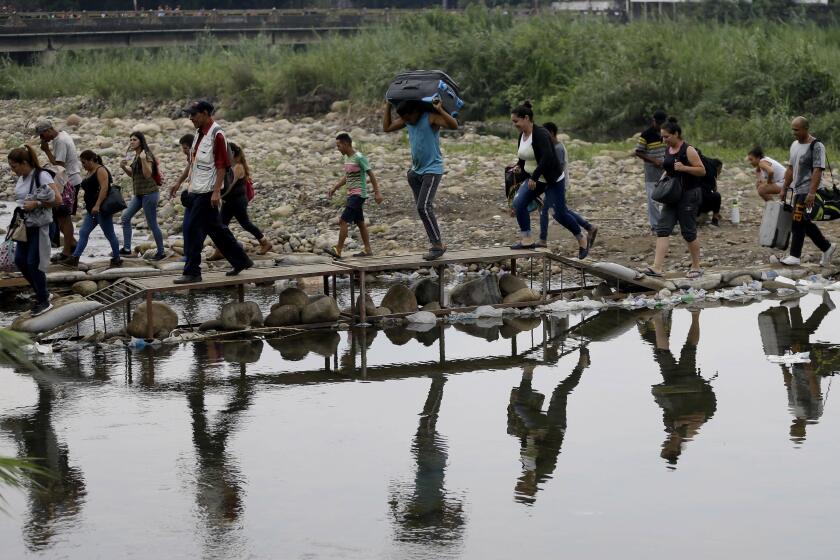Colombia reaches 100,000 COVID-19 deaths as cases surge

- Share via
BOGOTÁ, Colombia — Colombia reached 100,000 confirmed deaths from COVID-19 this week, becoming the 10th country in the world to cross that threshold.
The South American nation of 50 million has been registering a growing number of daily cases since April, and over the past seven days it had the world’s third-highest per capita COVID-19 death rate, according to data published by Oxford University.
On Monday night, Colombian President Iván Duque blamed anti-government protests that began at the end of April for many of the fatalities, saying that “more than 10,000 deaths could have been avoided” if Colombians had not held large gatherings over the past seven weeks.
But epidemiologists in Colombia said it’s too soon to tell how much of an impact the protests had on the current surge in COVID-19 deaths.
“The protests definitely played a role” in coronavirus contagion, said Diego Rosselli, a professor of epidemiology at the Javeriana University in Bogotá. “But at this moment putting any number on how many deaths they caused is mere speculation.”
More than 25,000 people have died from COVID-19 in Colombia since May 1, or about a quarter of those who have died from the disease since the first case of coronavirus was registered in Colombia in March of last year.
Lucas Villa was well-known among protesters in his hometown, dancing, singing and encouraging his comrades. Then someone shot him eight times.
Rosselli said more contagious variants of the virus may have contributed to the sharp acceleration in death rates, as has happened in nearby countries such as Argentina and Brazil.
Fatigue with sanitary measures like mask-wearing, crowded living arrangements and fewer restrictions on gatherings have also fueled contagion in Colombia and elsewhere in South America. The region makes up just 5% of the world’s population but accounts for almost one-quarter of all COVID-19 deaths.
In Colombia, the rise in cases comes as the government lifts some of the last restrictions it had put in place to control the spread of the coronavirus and allows nightclubs, bars and cinemas to open for the first time in more than a year.
Cities like Medellín and Bogotá are also preparing to hold trade shows and music events that will be attended by thousands of people. Ten thousand people recently attended a soccer match in the coastal city of Barranquilla.
Colombia will register hundreds of thousands of Venezuelan migrants and refugees who are living in the country without papers in a bid to provide them with legal residence permits and facilitate their access to healthcare and legal employment opportunities.
Municipal governments say they have no option but to allow these events in order to regain jobs and help the economy get back on its feet.
Colombia’s unemployment rate doubled last year as the government implemented several lockdowns to slow down contagion, and the country’s GDP shrank by 7%.
Vaccination sped up in June, with up to 350,000 doses administered in one day, but only 10% of Colombia’s population is fully vaccinated.
Doctors fear that recent decisions to allow more gatherings will increase the number of severely ill patients arriving at hospitals, which are already struggling to cope. In Bogotá, Cali and Medellín, more than 95% of intensive care beds at hospitals are already occupied.
Start your day right
Sign up for Essential California for the L.A. Times biggest news, features and recommendations in your inbox six days a week.
You may occasionally receive promotional content from the Los Angeles Times.
Paola Cabra, an emergency room doctor in the Samaritana University Hospital in Bogotá, said the best thing would be to return to lockdowns to decrease infections.
“But in a country like Colombia you can’t do that,” Cabra said. “Most people here work independently to make a living and cannot afford to stay home doing nothing.”
The hospital’s 19 intensive care units for COVID-19 patients have been full for weeks, forcing staff to add respirators and other equipment to emergency room beds.
“I would like to be wrong,” Cabra said. “But it looks like the situation will get worse in the following weeks.”
More to Read
Sign up for Essential California
The most important California stories and recommendations in your inbox every morning.
You may occasionally receive promotional content from the Los Angeles Times.












